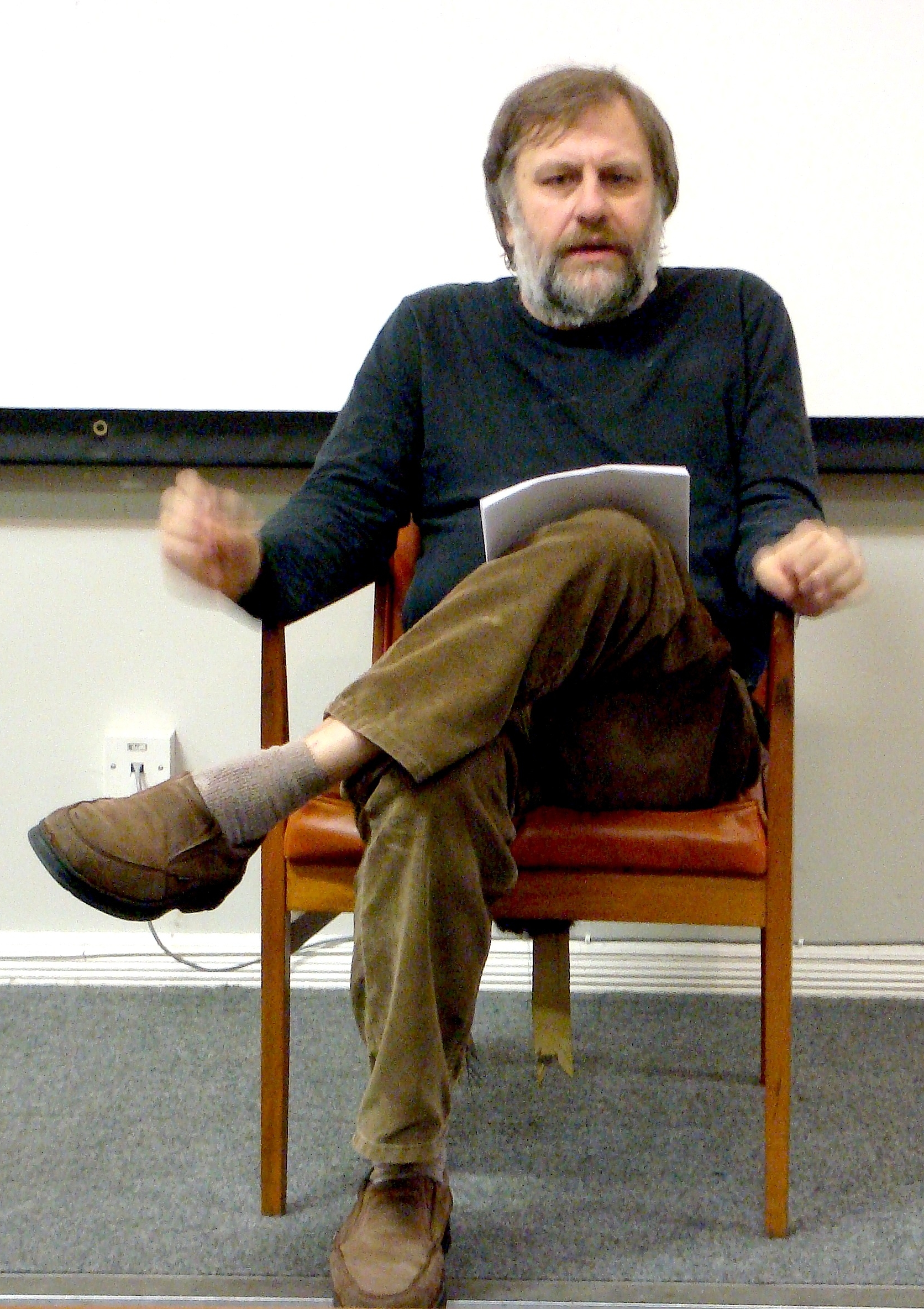Slavoj Žižek: Citáty v angličtine
Conversations with Žižek by Slavoj Žižek and Glyn Daly (Cambridge: Polity Press, 2004), p. 42
Zdroj: Less Than Nothing (2012), Chapter One (The Drink Before), Vacillating The Semblances
"Disputations: Who Are You Calling Anti-Semitic?" in The New Republic (7 January 2009); Žižek is here quoting a statement he made in a prior essay to distinguish what he had actually said with such assertions as he was portrayed as having made. He asserts that Hitler for all his bluster and brutality was a promoter of established economies and less boldly revolutionary in his ideas and actions than Gandhi.
the right to worship false gods.
The Fragile Absolute: or, why is the Christian legacy worth fighting for?
The fool answered: 'Yes of course I know that, but does the hen know?'
33
The Sublime Object of Ideology (1989)
The Fragile Absolute: or, why is the Christian legacy worth fighting for? (London: Verso, 2000, ), p. 111.
“A spectre is haunting Western academia (…), the spectre of the Cartesian subject.”
The Ticklish Subject: The Absent Centre of Political Ontology (London/New York: Verso, 1999), p. 1.
Zdroj: First as Tragedy, Then as Farce (2009), Chapter One, The Structure of Enemy Propaganda
OR IT MEANS NOTHING AT ALL.
"Reflections on WTC: Third Version" http://www.cosmos.ne.jp/~miyagawa/nagocnet/data/zizek.html#article01, Free Speech (7 October 2001)
Interview in The Believer magazine, (July 2004) http://www.believermag.com/issues/200407/?read=interview_zizek
Zdroj: The Plague of Fantasies (1997), Chapter One: The Seven Veils of Fantasy
As quoted by Eugene Wolters, " Professor of the Year: 'If You Don't Give Me Any of Your Shitty Papers You Get an A http://www.critical-theory.com/professor-of-the-year-if-you-dont-give-me-any-of-your-shitty-papers-you-get-an-a/'", Critical-Theory.com, May 26 2014; square brackets and lack of accent marks as in orginal
Zdroj: First as Tragedy, Then as Farce (2009), Chapter One, Human, All Too Human
"A Glance into the Archives of Islam" http://www.lacan.com/zizarchives.htm, Lacan dot com (2006)
first through the Soviet intervention
"Disputations: Who Are You Calling Anti-Semitic?" in The New Republic (7 January 2009) http://www.tnr.com/article/politics/disputations-who-are-you-calling-anti-semitic
Zdroj: Less Than Nothing (2012), Chapter Two, The Thing Itself: Hegel, pp. 198
“Heidegger is 'great' not in spite of, but because of his Nazi engagement…”
In Defense of Lost Causes (2008)
